SUMMARY
This is AI generated summarization, which may have errors. For context, always refer to the full article.
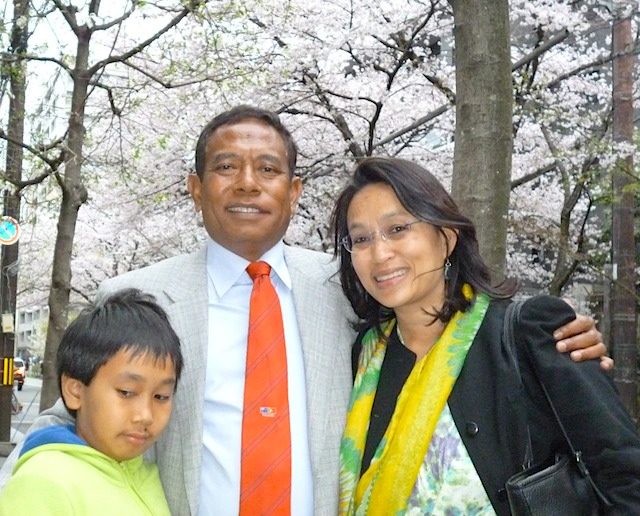
It has been 40 days since my husband’s death. We were the opposite of each other. But I suppose that is also what attracted us to each other in the first place and what sustained our marriage and friendship for 15 years, even after we tried to divorce 10 months ago. The divorce was never finalized because he cancelled the mediation meeting with the judge twice. When a good friend of ours, Carlos Miguel Godinho, asked him why he didn’t want to finalize the divorce, he answered, “Because I still love her.”
When my son and I left Timor Leste on August 29, 2014, to start a new life, I distinctly remember him telling us, in front of some of our close family and friends: “These paper documents cannot possibly explain our relationship. My love for you both transcends all of these and goes beyond all boundaries. I want you to know that.” We 3 – me, our son (Hadomi), and Maun Nando (my husband) – cried a lot that day. A good friend of ours, Milena Pires, said, “It is the end of an era.”
Unique politician
Death teaches us a lot about life and how to live our lives. Maun Nando’s death has forced us to learn a lot of painful and bitter lessons that we wish we could just sweep away and forget. The most immediate and raw lessons are at the level of our personal family life, but there are also lessons for all of the socio-political-ecological movements in civil society which he helped co-found and support (including Partido Democratico, Resistencia Nacional dos Estudantes de Timor Leste or RENETIL, Haburas Environmental Foundation, Universidade da Paz), and all the state and government institutions where he served, contributing towards shaping the “character of the state.”
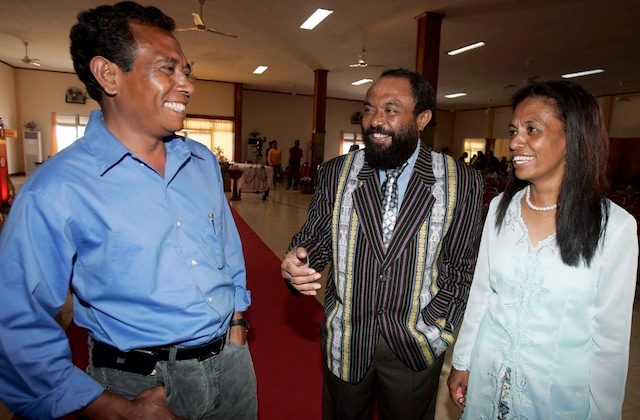
Fernando Lasama was a very unusual, unique, rare kind of politician. He was by no means a “traditional politician” from an elite family. His parents are farmers in the upland mountains of Manutasi, Ainaro, and his formation as an intellectual was not in a university (he was arrested for “subversion against the state” after completing his first year at Udayana University in Bali, Indonesia, studying Literature) but in the Timorese underground clandestine anti-colonial movement against Indonesian occupation.
A very important lesson that we can learn from the Timorese in general, but from Fernando Lasama’s role as a student leader in particular, is that individual human agency, especially from so-called “disempowered students and farmers” from “poor backgrounds” have in fact, a lot of power in changing the course of history. Without the young students who sacrificed so much without demanding to be in the limelight, monopolizing the microphone like some of the prima donnas of the older generation, Timorese history would have taken a very different course.
People from poor rural upland mountain backgrounds can transform national politics, and even unite bickering political elites from highly competitive political parties to come together, and for once, set aside their differences, to mourn together collectively – all that has been “taken away” and all that has been “lost” in the transition from colonization to independence.
True warrior
The reason why our grief and mourning is so immense is that La Sama represented so much of our own visions and dreams for a better society which may or may never be realized.
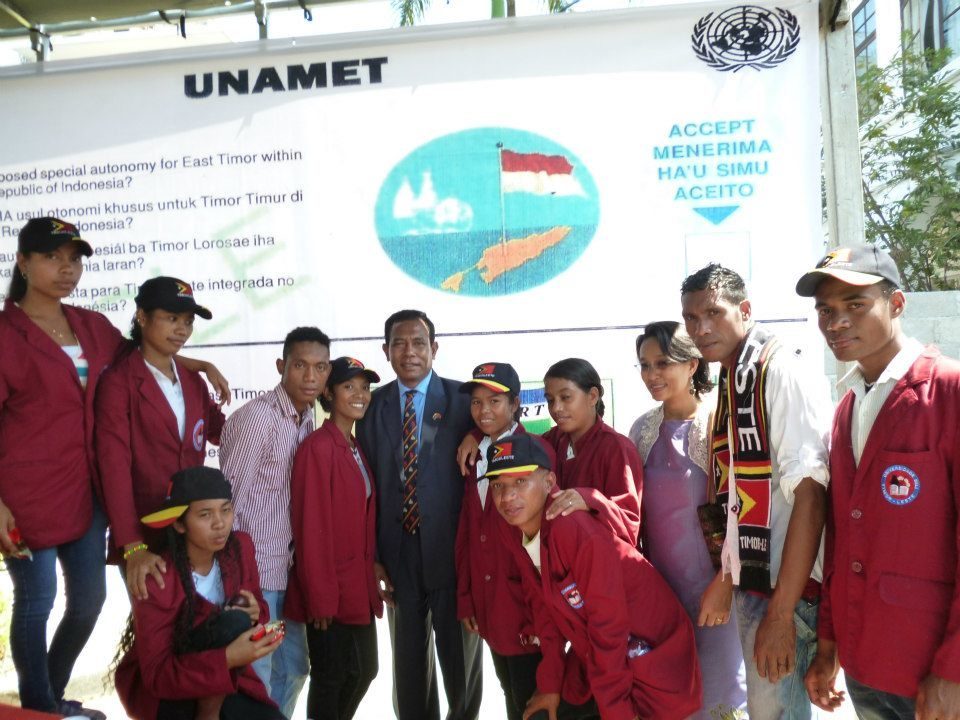
Another reason for the prolonged collective grieving is that we all know, deep in our hearts, that our nation-state building process and political culture killed him. I know – from spending so much time listening to his trials and travails at work after 12 midnight. It doesn’t matter if we have one good Prime Minister or another excellent Minister. If our systems, attitudes, every day practices, and processes in the public sector do not change (in a good way), all of our beloved good leaders will die the same tragic deaths.
As his companion for 15 years, whom he often woke up around 2 am or 3 am to talk about his nightmares (having never received proper trauma counselling for his imprisonment for almost 7 years), I would say that it is probably also the transition from living, working, and struggling in a non-state space to a state space that took a huge toll on his health. I remember the first time he had to wear a tie for an entire week. He kept saying it constrained him from laughing out too loud and was made to follow all kinds of new “protocols.”
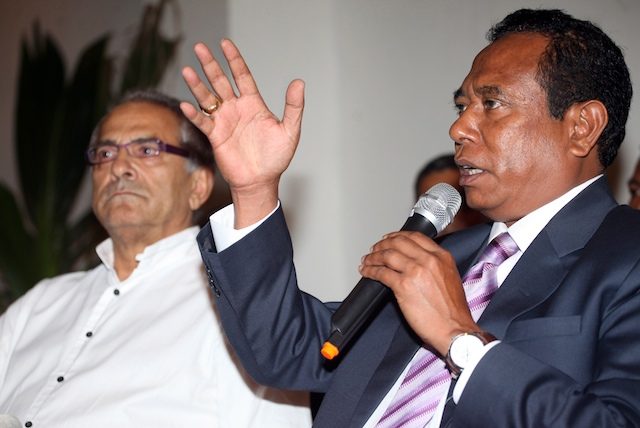
He had served as leader of an opposition party (Partido Democratico), Member of Parliament, Vice-Minister of Foreign Affairs, President of the National Parliament, Acting President, Vice-Prime Minister (and sometimes the Acting Prime Minister), and Minister of Education and Coordinator of Social Affairs in a newly independent post-war, post-conflict country where democracy continues to be precarious and where money politics has taken over almost everyone’s sense of moral clarity, public ethics, and accountability.
He is a true warrior in the noblest sense of the word. He fought at so many different fronts and with creative, strategic, out-of-the-box methods that would mind-boggle any political theorist or war strategist interested in studying and learning from Timorese history and politics. As someone who researches and teaches politics, I learned a lot from his life and example on the serious limitations of political theory, especially when it comes to themes like “democratization” and “security sector reform.”
Beloved father, husband, soulmate
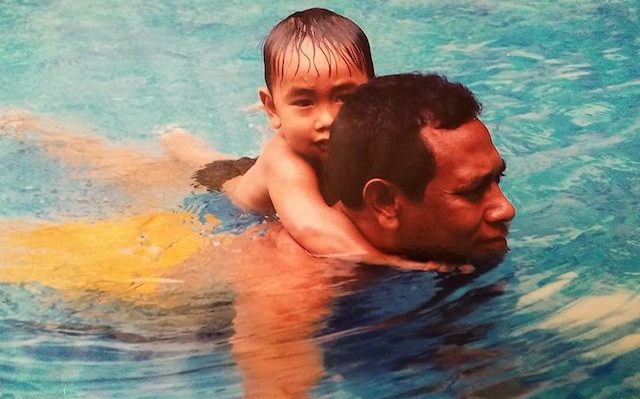
My son has lost his father. A father whom he loves very much. But at the same time a father who is a war veteran (“veteranus”) whose life was not perfect, and full of paradoxes and contradictions. I have lost not just a husband (who refused to finalize our divorce), but also a soulmate who continued to write to me every day, even after we left Timor in August last year to begin a new life.
It is my fervent hope that the political party, Partido Democratico, which he founded with so much love and commitment during very difficult times, can continue to cherish and uphold his values, instead of betraying them. I hope that Timor Leste will continue to grow as a prosperous, peaceful, ethical, creative country that supports and nourishes the youth and children in all their educational endeavors and dreams, just as Maun Nando had hoped and died for.
My sincerest and profoundest gratitude to everyone who supported us during these very difficult times. – Rappler.com
Add a comment
How does this make you feel?
There are no comments yet. Add your comment to start the conversation.